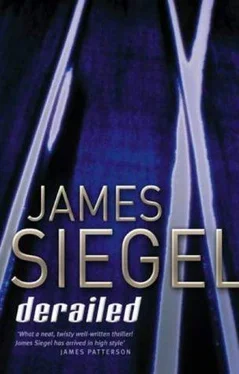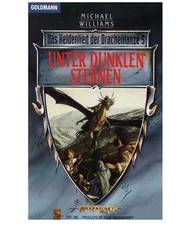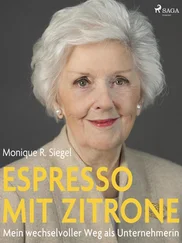“It’s about time,” David said. Charles wondered if he was expressing friendliness or simply satisfaction at Charles’s demotion into the land of analgesics.
He’d pick friendliness.
It was the agency producer’s job to bid out the board, work the numbers to everyone’s satisfaction, then go off and shoot it with you.
“This job seems a little high,” Charles said. He was referring to the bid price penciled in at the bottom of the page — already forwarded to the client for approval after factoring in editing, music, and all the other postproduction costs. Plus agency commission.
Nine hundred and twenty-five thousand dollars for a two-day shoot.
“They always pay that,” David said.
“Okay. It just seems a little high for two actors and an aspirin bottle.”
“Well, that’s the price,” he said flatly.
“Fine.” It wasn’t as though money were something Charles was supposed to concern himself with — only if the clients themselves were concerned about it. And according to David, they weren’t.
But it did seem high.
“Why don’t we get together next week and go over everything,” Charles said.
“I count the minutes,” David said.
Charles guessed friendliness wasn’t what David had been expressing after all.
Their second lunch date was still more lunch than date. Still just two people who found each other interesting, if unavailable.
When dessert arrived — two biscottis with cappuccinos — she said: “You never mention your daughter. What’s she like?”
“Normal,” Charles said.
“Normal?”
“Yeah. Normal.”
“That’s it? I’ve heard gushing parents before . . .”
“Rude. Moody. Generally embarrassed I’m her father. Normal. ”
Of course he hadn’t told her why his daughter was rude and moody a lot of the time.
But she was looking at him with an expression that looked kind of reproachful, so he did.
“She’s sick.”
“Oh.”
“Juvenile diabetes. And no, you don’t just take insulin and everything’s okay. Not this time.”
“Sorry,” she said.
“So am I.”
Lucinda was a first-class listener.
He realized this about ten minutes into his mostly uninterrupted monologue about just how sorry he was. How eight years ago he and Deanna had brought this normal little girl into the ER and left with someone else. A kid he had to give shots to twice a day and monitor closely so she wouldn’t dive into hypoglycemic shock. A kid for whom he had to go buy special insulin made from pig cells because it was the only one she’d really respond to, but whose general condition was in free fall anyway. A kid like that.
His kid.
She listened with empathy and concern. She shook her head, she sighed, she politely asked him questions when she didn’t understand something. Pig insulin — why was that?
He answered her as best he could, and when he finally finished spilling his guts, she resisted feeding him even one moronic platitude. He appreciated that.
“I don’t know how you manage,” she said, “I really don’t. How’s Anna dealing with it?”
“Fine. She’s renting herself out as a pin cushion.”
One of the way she was dealing with it, of course, was this way. The lame joke, the stale bon mot, laughing in the face of disaster.
“How’s that working out for you?” Lucinda asked him after he mentioned needling Anna about taking her pig’s insulin on time.
“How’s what working out?” Charles said. Playing dumb.
“Nothing,” Lucinda said. “Never mind.”
What do you talk about when you can’t talk about the future?
You talk about the past.
Sentences begin with “Remember when . . .” or “I passed Anna’s old nursery school today . . .” or “I was thinking about that vacation we took in Vermont. . . .”
After he and Deanna spent dinner reminiscing about the heatless ski shack in Stowe where Anna’s milk bottle had frozen solid, after they finished eating and stacked the dishes and Charles went upstairs and checked Anna’s feet, which she only grudgingly displayed for him, they both ended up in bed with the TV on.
Then somehow, her hand ended up touching his. His leg sidled up to her leg. It was as if their limbs were doing it on their own, their bodies finally saying, Enough of this, I’m cold. I’m lonely.
Charles got up and locked the door. Not a word about what they were doing. He slid back into bed and embraced her, heart colliding with his ribs, kissing her and thinking how he’d really and truly missed this.
Only somewhere in the middle of becoming lovers again they became strangers. It was odd how that happened. As he was moving on top of her and beginning to enter her, his mouth searching for hers — a sudden awkwardness to their motions. They were like two jigsaw pieces refusing to match — turn them this way and that way, and they still wouldn’t fit. She pushed against his chest, he fell out of her, he went to kiss her, she turned her head the wrong way. She smiled in encouragement, he moved back into her, she froze, he shrank and slunk away.
They untangled slowly and drifted to opposite sides of the bed. Neither of them said good night.
EIGHT
How did they get from lunch hour to the cocktail hour?
From tuna Niçoise and biscottis to cosmopolitans and salted nuts?
Lunch, after all, was something you did with a friend. Drinks was something you did with a good friend. Lunch involved a call to Lucinda, but drinks required a call to Deanna. An explanation for his lateness. It required lying.
And he was as bad a liar as he was a joke teller.
Then again, practice makes perfect.
“I’m working late tonight,” he told Deanna over the phone on the afternoon of their first nighttime date.
“I’m working late again, ” he told her the next time.
And the time after that.
Slowly becoming aware that life was changing for him. That he was spending most of his time more or less waiting for the next time he’d see Lucinda.
Temple Bar.
Keats.
Houlihan’s. Where both of them finally had to acknowledge where this was heading.
Maybe it was the drinks. He’d decided to forgo his usual Cabernet and had opted for a margarita instead. Or two. At a bar where they didn’t skimp on the tequila.
By his second drink, he was seeing things. Or not seeing things. For instance, the rest of the bar patrons had faded away, leaving only Lucinda.
“I think you’re trying to get me drunk,” she said.
“No. I’m trying to get you drunk er. ”
“Oh right. I forgot. I’m already wasted.”
“You look beautiful wasted,” he said.
“That’s because you're wasted.”
“Oh yeah.”
She did look beautiful—glassy eyes had nothing to do with it. Dressed tonight in something ridiculously short and impossibly snug, stretched this tight over her glossy nylon thighs.
“What did you tell your wife?” she asked him.
“I told her I was having drinks with a beautiful woman I met on the Long Island Rail Road.”
“Ha,” she said.
“What did you tell your husband?”
“Same thing. That I was having drinks with a beautiful woman I met on the Long Island Rail Road.” She laughed, holding her pink cosmopolitan away from her body so it wouldn’t spill on her.
Her husband. Stolid, dependable, nearly twenty years older than her, and poisonously boring, she’d complained to him. Passionate only about golf these days.
“You know . . . ,” he said. “You know . . .”
“What?”
“I forget.” He was going to say something that he had the vague notion he was going to regret later, but he’d lost it when she turned to look at him with those soft green eyes. If jealousy was the green-eyed monster, what was love? The green-eyed angel?
Читать дальше












